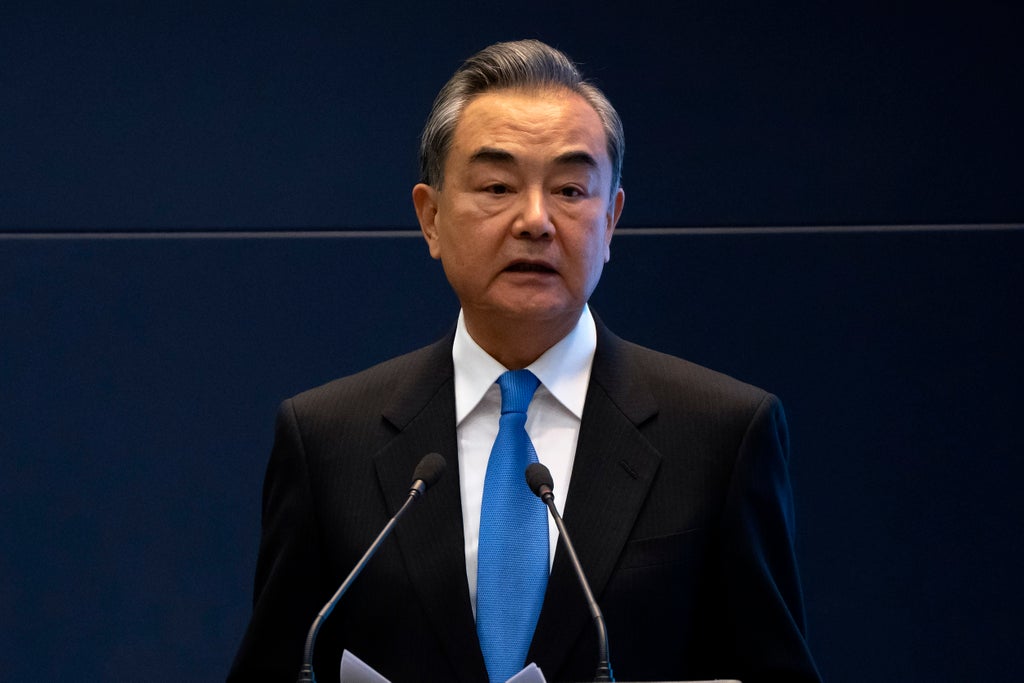
Chinese Foreign Minister Wang Yi criticized on Wednesday what he called negative moves by Washington and Tokyo against Beijing ahead of a meeting in Tokyo next week of the leaders of the U.S., Japan, Australia and India.
"What arouses attention and vigilance is the fact that, even before the American leader has set out for the meeting, the so-called joint Japan-U.S. anti-China rhetoric is already kicking up dust,” Wang told Japanese Foreign Minister Yoshimasa Hayashi in a video call, according to China's Foreign Ministry.
Japanese Prime Minister Fumio Kishida will host U.S. President Joe Biden, Indian Prime Minister Narendra Modi and the winner of weekend elections in Australia at a meeting of the Indo-Pacific strategic alliance known as the Quad.
In his May 19-24 trip, Biden will visit South Korea to meet its new president, Yoon Suk Yeol, before traveling to Tokyo, where he will also hold bilateral meetings with the other leaders in a show of U.S. commitment to the region.
China sees the Quad as an attempt to contain its economic growth and influence, while Biden has sought to build ties with other democracies to confront the rise of an authoritarian global power.
Hayashi told Wang that China should play a responsible role in maintaining international peace and security, noting that Russia’s invasion of Ukraine is a clear violation of international law. China has not publicly criticized the invasion.
Japan worries that Russia's actions could embolden China and escalate tensions in the Asia Pacific region, and quickly joined the United States and Europe in imposing sanctions against Moscow.
Hayashi expressed “serious concern over the situation" in the East and South China seas, referring to increasingly assertive Chinese military actions there, as well as in Hong Kong and China's Xinjiang region, and stressed the importance of peace and stability in the Taiwan Strait.
Tokyo is particularly worried about increased activity by Chinese coast guard and naval ships around Japanese-controlled East China Sea islands which Beijing also claims, and is promoting a free and open Indo-Pacific with the United States, Australia and other democracies as a counter to China's rise in the region.
A statement from the Japanese Foreign Ministry included no reference to the Quad meeting or China's criticism of it. It also did not mention the United States or other countries.
Wang said Japan-U.S. cooperation should not provoke confrontation between camps or harm China’s sovereignty, security and development interests, a Chinese statement said.
Referring to Japan's invasion of China last century, Wang said, “Our hope is that Japan will learn history’s lessons, focus on regional peace and stability, proceed with caution, not pull others’ chestnuts out of the fire and not be led astray by advantaging oneself at the expense of one’s neighbor."







